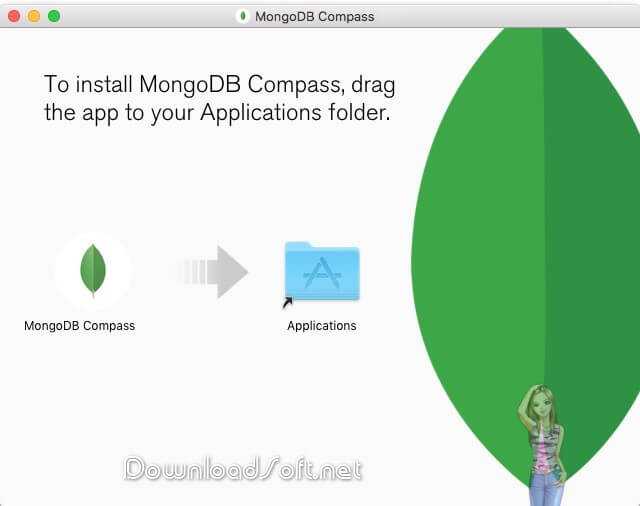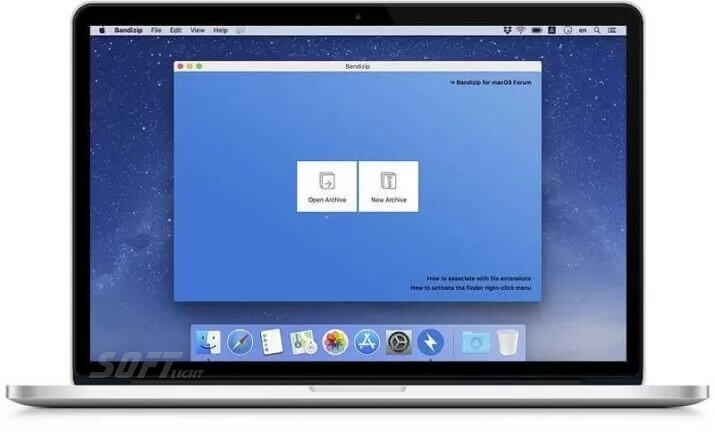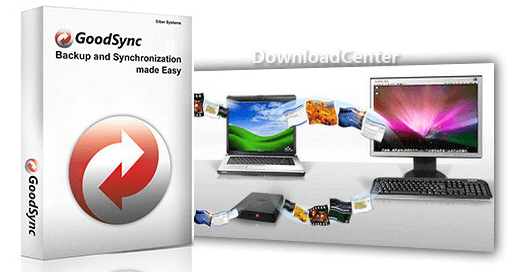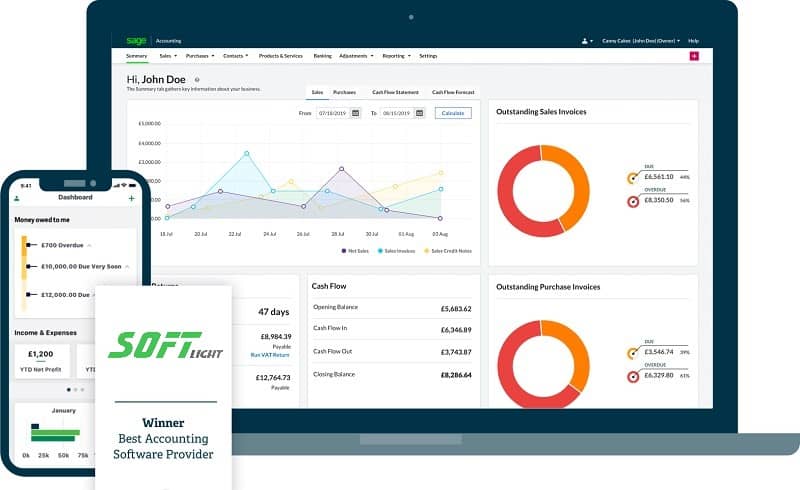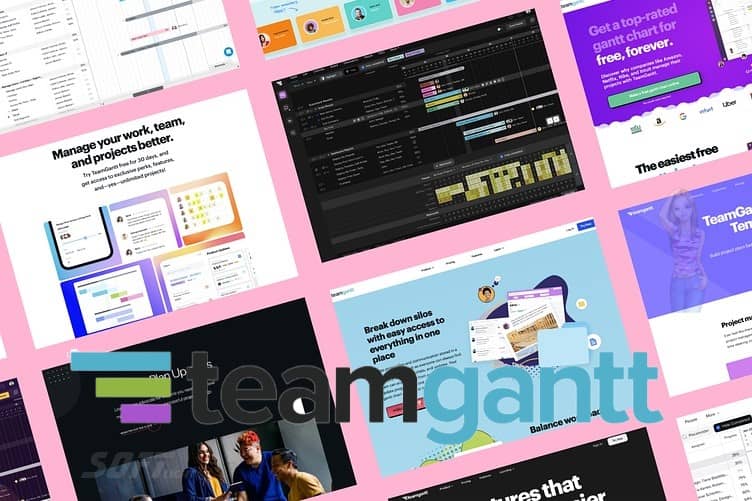Accounting Software for Big Business: Features and Benefits
Accounting Software for Big Business: Features and Benefits
Accounting Software for Big Business: Streamlining Financial Management
Managing the financial aspects of a large business can be a daunting task. With numerous transactions, invoices, and receipts to track, it can feel overwhelming for even the most organized accountant. However, advancements in technology have significantly simplified and enhanced this process. In this article, we will explore the advantages of utilizing accounting software for large enterprises and the key features to consider when selecting the right solution for your organization.
What is Accounting Software for Big Business?
Is a digital tool designed to assist in managing financial transactions, bookkeeping, and reporting. It streamlines processes, automates repetitive tasks, and minimizes errors. These software solutions typically offer advanced features like customized reports, budgeting tools, inventory management, and payroll processing. By providing insights into the company’s financial performance, this software aids in making informed decisions.
These solutions often include features such as sophisticated reporting capabilities, budgeting and forecasting tools, inventory management, and multi-user access. They can integrate seamlessly with other business systems, including enterprise resource planning (ERP) and customer relationship management (CRM), to deliver a comprehensive view of the organization’s financial performance.
The primary goal is to equip businesses with the tools necessary to manage their financial operations more efficiently, accurately, and securely. By automating many financial processes and providing real-time visibility into financial data, this software helps organizations make informed decisions and enhance their overall financial performance.

Benefits
1. Increased Efficiency
One of the most significant benefits of accounting software is the enhancement of efficiency in financial management. Automation of repetitive tasks such as data entry, bank reconciliations, and invoicing allows businesses to save valuable time and resources. The software also delivers real-time financial data, enabling quick and informed decision-making.
Moreover, by automating manual tasks, businesses can significantly reduce errors, which can lead to costly mistakes. Centralizing financial data in one location streamlines management processes, making it easier for businesses to access and analyze their financial information. This increased efficiency not only saves time but also allows finance teams to focus on strategic initiatives rather than mundane tasks.
2. Accurate Financial Reports
Accurate financial reporting is essential for large businesses. The software generates precise reports, including balance sheets, income statements, and cash flow statements, providing valuable insights into the organization’s financial health. This capability helps businesses track performance, identify trends, and make strategic decisions.
By automating reporting processes, the software minimizes the risk of errors and allows for real-time access to financial data. Customizable reporting features enable businesses to focus on the most relevant information, driving informed decision-making. Additionally, the ability to schedule automated reports ensures that stakeholders receive timely updates, enhancing transparency and accountability.

3. Streamlined Tax Compliance
Tax compliance can be a complex and time-consuming task for any organization. However, it simplifies the tax process by ensuring accurate tax calculations, automating tax filing, and keeping track of all tax-related information. This functionality helps businesses comply with tax laws and avoid potential penalties.
The software can automate many of the manual tasks involved in tax compliance, reducing the risk of errors and ensuring that businesses meet all filing deadlines. By preparing and submitting tax returns automatically, organizations can focus on their core operations while minimizing the risk of fines. Furthermore, the ability to generate tax reports and summaries simplifies audits and inspections, providing peace of mind.
4. Improved Cash Flow Management
Effective cash flow management is critical for any business, particularly large enterprises with numerous financial obligations. Provides real-time financial data, allowing organizations to monitor their cash flow and make informed decisions. Features such as electronic invoicing and payment processing enhance cash management efficiency by reducing the time it takes to receive payments.
Additionally, the software offers insights into accounts receivable and accounts payable, helping businesses identify potential cash flow issues, such as overdue payments or late invoices. By proactively managing cash flow, organizations can avoid financial shortfalls and ensure they meet their obligations, thus maintaining healthy relationships with suppliers and creditors.

5. Increased Collaboration
Modern accounting software fosters increased collaboration among teams. With real-time access to financial data, different departments can work together more effectively. For instance, the sales team can utilize financial insights to identify the most profitable products, while the marketing team can tailor campaigns based on financial data.
This level of collaboration enhances decision-making across the organization, as teams can align their strategies based on accurate financial information. Moreover, cloud-based solutions enable remote access to financial data, facilitating teamwork and communication, especially in increasingly hybrid work environments.
6. Enhanced Security
Given the sensitive nature of financial data, security is a top priority for any software. Robust security features are essential to protect against data breaches and unauthorized access. Look for software that offers encryption, two-factor authentication, and user permissions to safeguard financial information.
Moreover, regular software updates and compliance with industry standards can further enhance security. Ensuring that sensitive data is protected not only builds trust with clients and stakeholders but also helps mitigate the risks associated with financial fraud.
Features to Consider
When selecting accounting software, consider the following key features:
1. Scalability
The software should be scalable to accommodate business growth, handling an increasing number of transactions and users without sacrificing performance. This flexibility allows organizations to adapt to changing business needs and growth trajectories.
2. Customization
Customization is essential for meeting specific business needs. The software should allow for tailored reporting and solutions that align with unique operational requirements. This customization ensures that businesses can focus on the metrics that matter most to them.
3. Integration
Seamless integration with other tools and systems used by the business is crucial for ensuring efficient data sharing across platforms. The ability to integrate with CRM systems, supply chain management software, and other business applications enhances overall operational efficiency.
4. Support
Reliable customer support is vital for addressing technical issues promptly and ensuring smooth software operation. Look for providers that offer comprehensive support options, including online resources, live chat, and phone support, to assist users whenever challenges arise.

Top Accounting Software for Big Business
Now that we’ve explored the benefits and features to look for, here are some of the leading solutions available in the market:
1. NetSuite ERP
NetSuite ERP is a cloud-based system that offers a comprehensive suite of financial management tools, including financial planning, budgeting, invoicing, and reporting. It supports multi-currency transactions and payroll processing, making it scalable and customizable to meet the specific needs of enterprises.
2. QuickBooks Enterprise
QuickBooks Enterprise is designed specifically for large businesses, providing features such as inventory management, job costing, and customizable reporting. It includes advanced payroll tools, automatic tax calculations, and direct deposit functionalities, catering to the complex needs of larger organizations.
3. Xero
Xero is a cloud-based platform that offers a wide range of financial management tools, including invoicing, inventory management, and payroll processing. Its scalability and customizable reporting options make it suitable for growing businesses, and its intuitive interface makes it easy for users to navigate.
4. Sage Intacct
Sage Intacct is tailored for large enterprises and offers features like financial planning, budgeting, and revenue recognition. Its robust inventory management capabilities and support for multi-currency transactions enhance its appeal to businesses operating in multiple markets.
5. Microsoft Dynamics 365
Microsoft Dynamics 365 is a powerful ERP solution that integrates financial management with other business functions. Its accounting features are complemented by CRM, supply chain, and project management capabilities, making it a comprehensive solution for large organizations.

Conclusion
Accounting software for large businesses is a vital tool for efficient financial management. It streamlines financial processes, provides accurate financial data, and offers insights into the financial performance of the business. When choosing software for big businesses, it is essential to consider features such as scalability, customization, integration, security, and support. By selecting the right software, businesses can save time, reduce errors, and make informed decisions that improve their overall financial health. Embracing the right accounting software not only enhances operational efficiency but also positions businesses for sustained growth in an increasingly competitive market.
